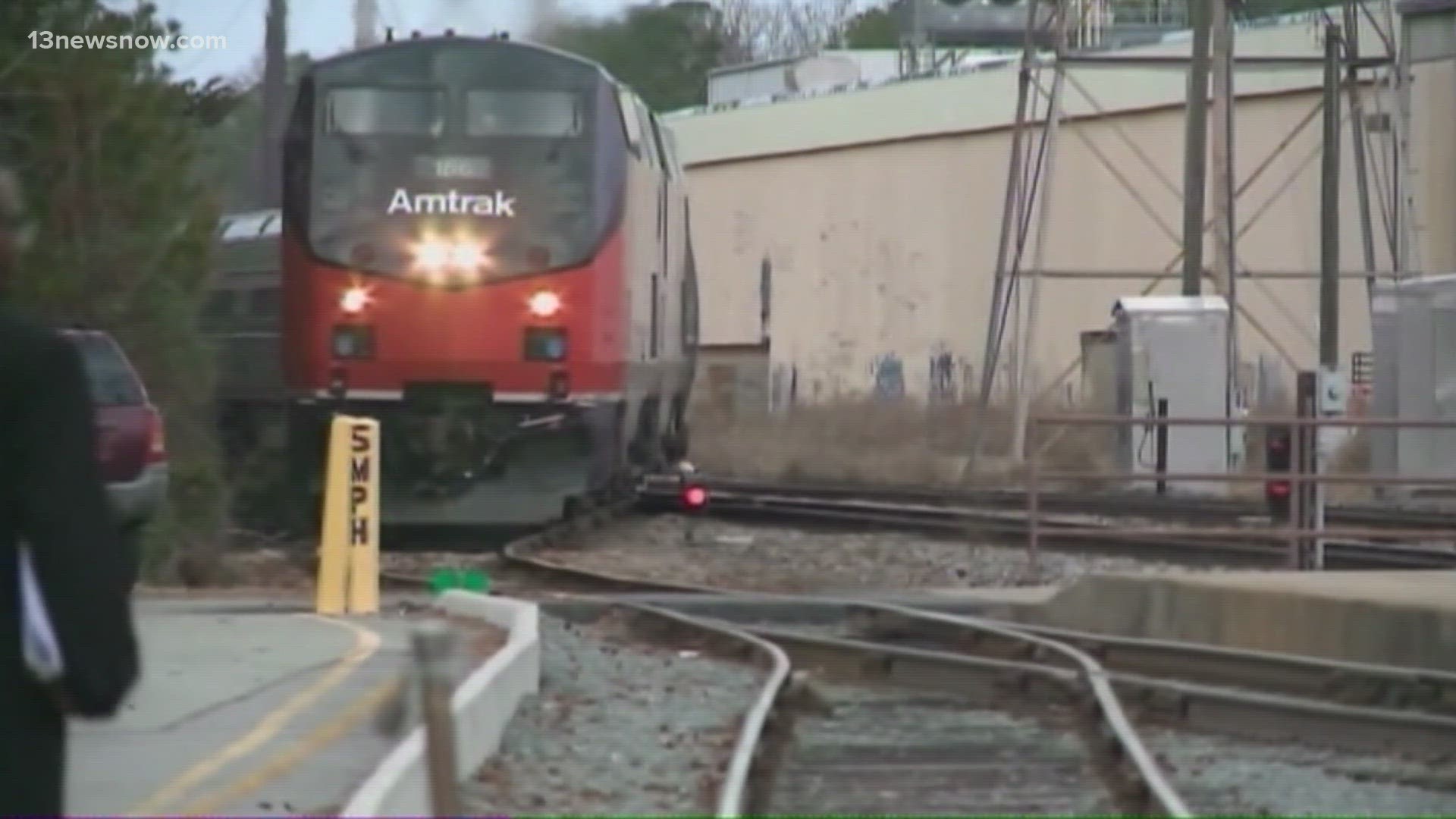NORFOLK, Va. — A train route that once offered passengers a direct trip to the western part of Virginia could start running again, thanks to new federal funding.
Virginia is currently served by 13 Amtrak regional and national trains that connect 21 rail stations.
The Commonwealth's system is one of the best revenue generators of its size for Amtrak. Recent ridership numbers show interest in regional passenger rail may be at an all-time high.
According to the Virginia Passenger Rail Authority, Amtrak service within the state saw a 53.2% increase in April 2023 compared to the same month in 2022.
Routes serving Newport News (Route 47) and Norfolk (Route 50) saw 81.3% and 49.6% increases during that same timeframe.
There remains, however, a lack of east-to-west routes — Hampton Roads to Roanoke, Charlottesville and Blacksburg, for example.
Following a study in 2018, and some recent action from lawmakers, the groundwork is being laid to change that and bring back a western route.
It’s called the Commonwealth Corridor, and it’s something we haven’t seen in more than 40 years.
Back in the 1970s when Amtrak was first offering passenger rail service, we had a line from Hampton Roads to Charlottesville. However, it wasn’t a money-maker, so it only lasted around 10 years.
As it stands now, if you wanted to ride the Amtrak to Roanoke from Norfolk or Newport News, you’d have to ride all the way up to Washington D.C., then come all the way back down to Roanoke. What is normally a 4.5-hour drive, would be a 16-hour train ride.
The Commonwealth Corridor would open up Western travel, offering quicker trips to colleges and universities including the University of Virginia and Virginia Tech.
Plans for the new Commonwealth Corridor took a step forward thanks to a $500,000 grant as part of a federal infrastructure package.
It will help fund preliminary construction and engineering, as well as environmental studies for the train route.
Virginia has already acquired tracks for the project that will likely have a price tag north of $400 million.

